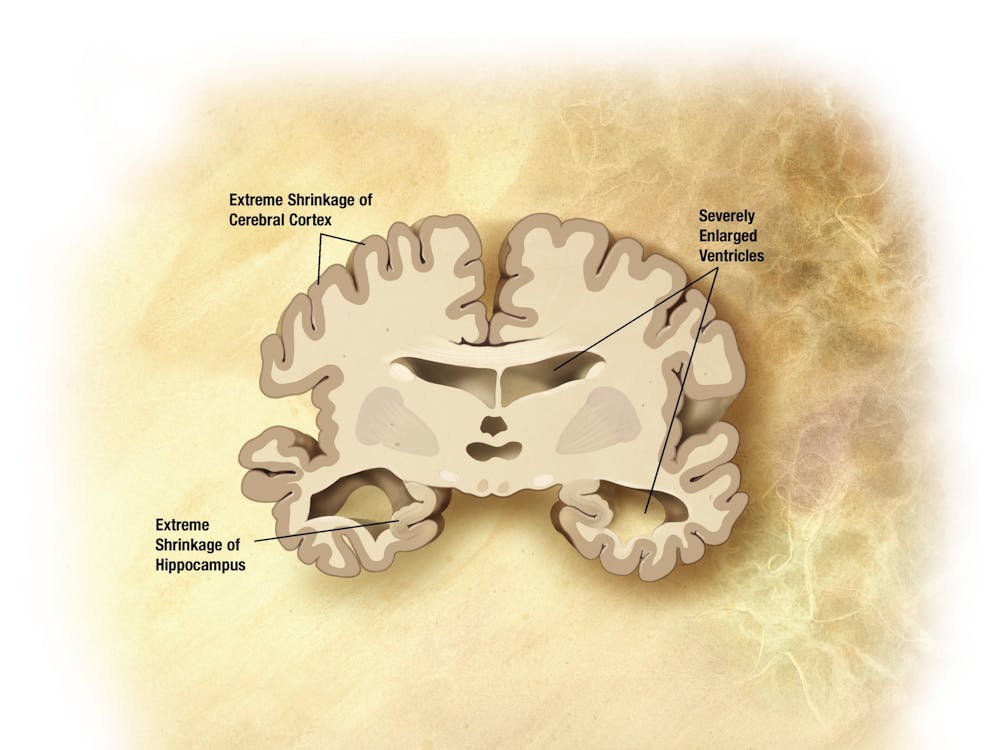Award-winning author Marita Golden discussed her advocacy for Alzheimer’s disease at a virtual webinar on April 23. The Writing Program’s Distinguished Visiting, Golden has been a novelist and non-fiction writer for over 40 years and is actively involved in advocacy for black rights. The webinar was hosted by Kim O’Connell, a faculty member in the Hopkins Master’s in Science Writing program.
The talk focused on Golden’s most recent book, The Wide Circumference of Love. The novel tells a story from the perspective of a man diagnosed with Alzheimer’s as his family members reexamine their connection with the man he once was and learn to love the man he has become.
As O’Connell noted, authors often choose to write on topics that they know about. However, this was not the case with Golden’s endeavor into Alzheimer’s.
“Write about what you don’t know. Be willing to go where there is no creative path,” Golden said. “The deepest writing comes when you write about aspects you don’t understand.”
When Golden began research for this novel in 2014, she had no personal experience with Alzheimer’s among her friends or family. Instead, she had become aware of the toll of neurodegenerative diseases nationwide. There are more than five million Americans diagnosed with Alzheimer’s, although the number is believed to be much higher. She also uncovered a stunning correlation between Alzheimer’s and African Americans.
“I discovered African Americans are twice as likely to develop the disease as a result of the ABCA7 gene,” Golden said. “I also believe that the struggles faced by African Americans — lack of housing, poverty, racism — all contribute to a higher prevalence of the disease in our community.”
Throughout her career, Golden has dealt with difficult topics — among them a police officer who killed a teenager and a mother dealing with the loss of her child.
In order to provide an accurate account of Alzheimer’s, Golden spent time at a memory care unit in Washington. After beginning the novel, she presented some of her work to a social worker at the memory care unit.
“She encouraged me to spend more time with the patients to understand how they thought and experienced life,” Golden said. “It was something I couldn’t fathom at first.”
However, through discussions with patients, their family and friends, Golden developed an understanding of patients with Alzheimer’s and began to understand the love, loyalty and devotion shared between patients and their family.
“The most difficult part in writing this novel was getting into the head of someone with Alzheimer’s, and obviously I had no understanding of what that was like until I began to speak with patients and their families,” Golden said.
Golden connected the themes of connection and memory loss through the metaphor of building and architecture.
The protagonist of the novel, Gregory Tate, is a former construction worker who can no longer recognize the city he helped to build. The scaffolding of the family threatens to fall and then is rebuilt, new and improved, as the family puts aside their conflicts in the face of Alzheimer’s.
Golden continued to provide drafts of the novel to two individuals: the social worker and the wife of a patient with Alzheimer’s at the memory care unit.
As she continued research into the novel, Golden became aware of the massive toll that Alzheimer’s, along with other forms of dementia, take on our society.
“Everyone right now is concerned with [coronavirus] COVID-19, but in many ways, Alzheimer’s is also a quiet pandemic and seismic shift in our society,” Golden said. “Families often leave work and pay high medical costs for their families.”
As scientists race to develop drugs to treat Alzheimer’s, Golden is concerned that African Americans have been left out of this drug discovery process. In fact, only three percent of the patients in Alzheimer’s trials are African American. Now, Golden is advocating for more awareness of Alzheimer’s Disease in the African American community through outreach and medical care available to all.
As a final word, Golden expressed her optimism amid Alzheimer’s and COVID-19.
“I’ve tried pessimism in the past, but it doesn’t fit me,” Golden said. “Hope is simply in our DNA.”





